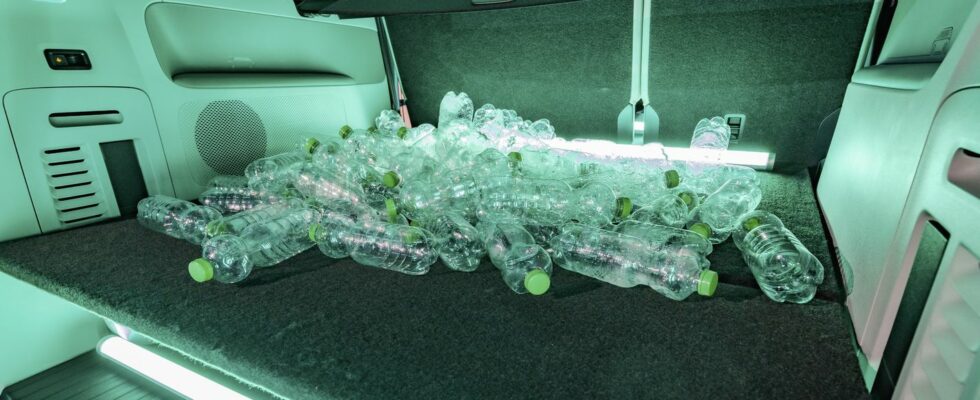Volkswagen wants to accentuate the “sustainable” side of its range of ID electric vehicles.
This will notably involve the choice of certain recycled materials inside the cabin.
The Volkswagen ID range. even more sustainable
In the course of 2023, Volkswagen will expand its range of vehicles, with a new version of its very popular ID3., without forgetting the integration of additional recycled materials. This will concern ID.3, but also ID.4, ID.5 and ID.7. Indeed, if Volkswagen is already using various new (and sustainable) materials when it comes to the interior of the ID. Buzz, these will gradually be integrated into the other models in the ID range.
” By generalizing the use of recycled materials and alternative coverings to animal leather inside the passenger compartments of our ID. models, we are further improving the ecological balance of our vehicles. Feedback from our customers confirms our belief that we must continue on this path. explains Silke Bagschik, Head of the Electromobility product line.
Interiors designed (among other things) from recycled plastic bottles
Volkswagen explains in particular that many elements on board will be made of ocean plastic and/or old plastic bottles. The outer part of a seat upholstery is made of Seaqual fibre, which is made from 10% collected marine plastic debris and 90% recycled polyester.
The upholstery of the headrests and the floors of the ID. Buzz is entirely made of recycled polyester. Recycled plastics are also present in the insulation layer of the mat, on the underbody lining, or even at the level of the wheel arch linings.
In addition, Volkswagen no longer uses chrome on the finishes of the doors, the control panel and the steering wheel, due to the damage that its production causes to the environment. The chrome was therefore replaced by a chrome-like liquid paint, based on an ecological binder. In the competition, the manufacturer BMW had also recently formalized the recycling of plastics from the oceans to manufacture various elements of the brand’s new vehicles.
Remember that by 2030, Volkswagen has set itself the goal of reducing its CO emissions by 40%2 per vehicle. The manufacturer is aiming for carbon neutrality by 2050 at the latest.
Source : Electrek

2